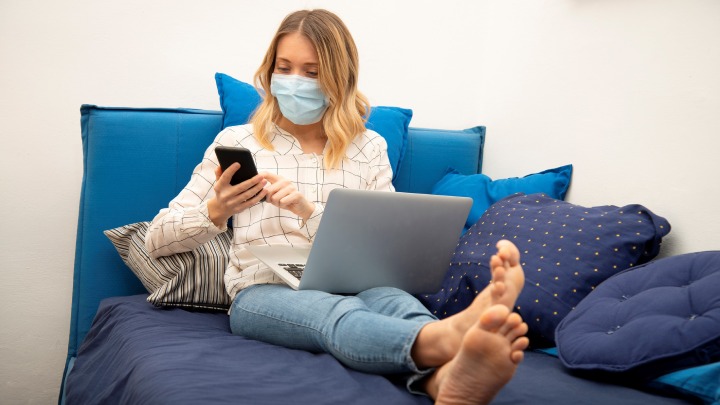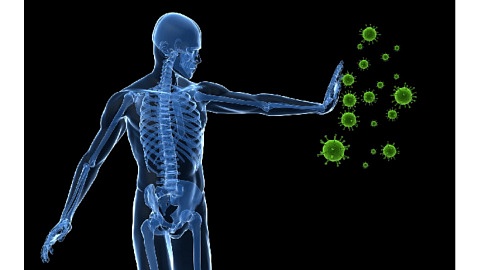A resilient immune system is essential for maintaining good health and preventing many different types of illnesses. The immune system helps protect the human...
The stress response and keeping your immune system healthy
Everyone has one thing on their mind, coronavirus disease (SARS CoV2) and rightly so. In Canada the number of positive cases is increasing ever so slightly with each passing day. The country has ensured measures to help reduce transmission and so far, it is working, really it is. The recommendations of diligent hand washing and social distancing are being heavily practiced and are critical to slowing down the spread.
The rapidly changing information has led to thoughts of running out of food, medications and essentials such as toilet paper as many people are transitioning to staying home. The combination of these events, governmental responses, media announcements and social media posts has our stress response alarm bells ringing loudly and constantly.
The human body is designed to deal with stress. There is a remarkable sequence of physiological changes that occur when the human body encounters stress. Whether it’s an argument with a loved one, running away from a threat or turning on your screen to learn about a confirmed positive case of coronavirus within your community, the stress response is automatically activated. When activated, epinephrine and norepinephrine rise in the bloodstream, this causes a surge in cortisol, the stress hormone produced by your adrenal glands. This increase in cortisol helps deliver messages to the body to help cope with stress. In particular, short bursts of cortisol during stressful periods help increase energy and alertness to help you deal with the stressful situation. However, prolonged, worsening stress can lead to dysfunction and a counter-productive stress response. Situations such as the coronavirus pandemic are wreaking havoc on our normal healthy stress response.
When the stress response becomes dysfunctional it can impact other systems and functions in the body. Sleep disruptions, decreased mental well-being and chronic inflammation can occur. One of the main systems that are negatively impacted by stress is the immune system. Chronic stress can reduce the immune system’s defense response, increasing the likelihood of getting sick. So, with the current climate, one of the best things we can do for our health is to check in and keep stress levels within a healthy range. Panicking is not productive and does not benefit your health.
Tips to maintain mental well-being and keep your immune system strong:
- Starting your day with meditation, yoga or deep breathing helps activate the parasympathetic nervous system to promote a sense of calm. Even a 10-minute session in the morning can have a significant impact on your well-being. There are a variety of free apps and videos available. And really, all you need is soft music and a quiet, dimly lit room. Give it a try, what else are you doing with all that time at home now anyways?
- Using adaptogenic herbs are a great option to consider right now as well. These herbs help promote mental relaxation but also ramp up your immune health, what a great combo! Some adaptogenic herbs include licorice, ashwagandha, reishi mushroom and holy basil. Many online retailers are offering home delivery, so you don’t even have to step out of your home to get your hands on these stress-relieving herbs.
- Get a good night’s rest. There is no doubt the health and financial constraints are making it difficult to have a restful sleep, but ensuring you are well-rested helps boost immune health. If you are having difficulty falling or staying asleep, there are many herbs that help promote mental calmness and relaxation. Melatonin helps support sleep onset and can increase total sleep time. Herbs such as passionflower, chamomile and valerian have been used traditionally for improving sleep and even benefit mental health.
- Stay connected. Social distancing isn’t the best term. While ensuring you are physically six feet apart from others, connecting via video chat, messaging apps and good old fashion phone calls can help ease anxiety levels and make you feel more connected. So, pick up the phone and chat. It may just be the best thing for your health today.
Self-isolation is an important measure for global health but is also a great opportunity to work on your mental and physical health. Stay calm, seek support (virtually) and use this time while at home to focus on self-care, your health depends on it.
Related Posts
Bell Lifestyle Products announced today the
re-release of their popular Liquid Multivitamin.
“As a leader in liquid multivitamins, we
wanted to take the...
Bell Lifestyle Products announced today the release of their
new Immune Support product for the Canadian market. This product joins a
comprehensive family of...
Bell Lifestyle Products announced today the re-release of their popular Liquid Multivitamin. “As a leader in liquid multivitamins, we wanted to take the...
Bell Lifestyle Products announced today the release of their new Immune Support product for the Canadian market. This product joins a comprehensive family of...
Categories
- Allergy Relief
- Bell Lifestyle News
- Brain and Vision Health
- Depression
- Digestive Health
- Eating Healthy
- Energy Boosts
- Fitness
- Foods for Energy
- Heart and Lung Health
- Herbs
- Immune System Support
- Lifestyle
- Men's Health
- Mental
- Motivation
- Natural Remedies
- Nutrition
- Pain Relief
- Physical
- Recipes
- Relationships
- Sexual Health
- Skin and Hair Health
- Sleep Health
- Social
- Stress Relief
- Uncategorised
- Videos
- Weight Management
- Women's Health
- Your Wellness Now
Follow us on Twitter
#90 Bladder One for Women™ is a convenient one-a-day capsule for urinary tract health, featuring herbal extracts in… twitter.com/i/web/status/1…
May 2023Urinary tract infections - UTI: To treat or prevent? That is the question. Find out more about causes and treatme… twitter.com/i/web/status/1…
May 2023"How you feel is very important to how you look. Healthy equals beautiful." - Victoria Principal #womenshealth https://t.co/OPShoEbOXb
May 2023
© Copyright 2024. All rights reserved.





